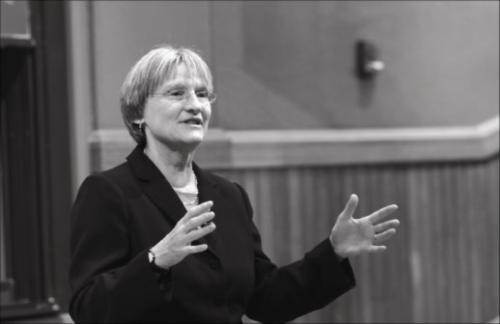At the start of the 2008-2009 school year, the financial picture still looked rosy for Harvard students. Dean of the College Evelynn M. Hammonds’ recent funding initiative for undergraduates was welcomed by the student body, and hints of budget cuts were still far off on the horizon. Economists noted that college towns and campuses are often the most insulated areas during tough economic climates, but it did not take long for the Wall Street meltdown to make its presence felt at Harvard. In early December, President Drew G. Faust wrote an email to the Harvard community hinting at the University’s financial woes. The revealed endowment loss was large, a full 22 percent down. With no major cuts yet made, we declared our preparedness for hard times. With so much potentially on the cutting block, we conceded that cuts to student life may be necessary to maintain our academic culture.
Soon though, it became apparent that small cutbacks to House barbeques and formals were not going to be the end of the cutbacks. February brought on the announcement of a major delay of the Harvard-Allston construction, an unfortunate move that will only delay Harvard’s science and research, and worsen already strained relations with Allston neighbors. We are mindful of the financial challenges and mental stress that this situation is placing on Harvard’s administrators, but as Boston Mayor Thomas Menino pointed out in a letter to Faust, we have to push forward and keep our promises to Harvard’s students and the Allston community.
Current students were also hit with a late-winter announcements of a tuition increase. This, however troubling for families that already struggle with the term bill, was still something that must take place for academic goals to be preserved. This mixing of goals was also apparent in the extending of Harvard’s temporary ban on transfer applicants, when lack of adequate housing ruled out the chance to accept students from a very valuable pool. After all, along with the tuition hike came increased financial aid, one area of University spending that we believe should be prioritized above all else, and thankfully continues to that students from all different backgrounds can attend Harvard.
No matter what type of life Harvard students are coming from, their health must be supported. This year proved that Harvard University Health services are capable of both handling a crisis well, but also cutting back on necessary services. UHS handled the Swine Flu scare adequately with constant notifications and small steps to prevent infection. It wasn’t so adept at handling sexual health, however, as Harvard ended of anonymous HIV testing program. In a peculiar move the University moved backwards in its support of sexual health and awareness.
The question of recognition for the Harvard Reserve Officers Training Corps also worked its way into the conversation this year. University policy still states that as long as the U.S. military continues to discriminate against homosexuals with its “don’t ask, don’t tell” policy, Harvard will not reinstate the organization, the right response to an explicitly exclusionary rule. However, the sacrifice these Harvard cadets make is still sincerely appreciated, and Harvard should take simple measures short of official recognition to help support these students.
The scope of cuts to the Harvard Budget continued to widen when announcements of cuts to staff, such as custodians and janitors, were made. While this move generated protests and rallies directed by the Student Labor Action Movement, and even a critical letter from the Cambridge City Council, since the University’s first priority must remain the education and research it can generate, these cuts were unfortunate, but necessary, evils.
More troublingly, this crisis revealed a general lack of transparency in University finances. This problem was somewhat mitigated by the “town hall meetings” hosted by FAS Dean Michael Smith, but these clarification sessions were not sufficient. Harvard needs to be more open about its financial situation so that its plans can be critically evaluated.
Although knowing that student life, staff job security, and the possibility of and J-Term were all dwindling was troubling enough, as the months wore on it became clear that the quality of education was no longer safe either. Effects of the budget problems started at the top with the Faculty, with the option of early retirements being offered to older professors in an effort to save money. While some benefit exists in younger faculty being given more responsibility and power in Harvard’s vast departments the faculty buyout further strains the school’s academic offerings, cutting into its core mission. This is especially problematic given that the early retirement plan came along with dramatically reduced hiring of new faculty.
The cuts and policy decisions that have been made so far have been heavy, and more will be arriving in the fall. Beyond token town hall meetings, more student input must be taken into account when cuts to student life and services are made in the future. In addition, having expanded dramatically over the last ten years, Harvard’s central administration—the very people that are deciding the school’s financial future—must be willing to make cuts to their own bureaucracy along with everything else. This process will not be enjoyable, and life at Harvard will be dramatically different, but our priorities of education and safety must be the guiding factors, no matter who is calling the shots.
Read more in Opinion
Five Reasons for Reason and Faith













